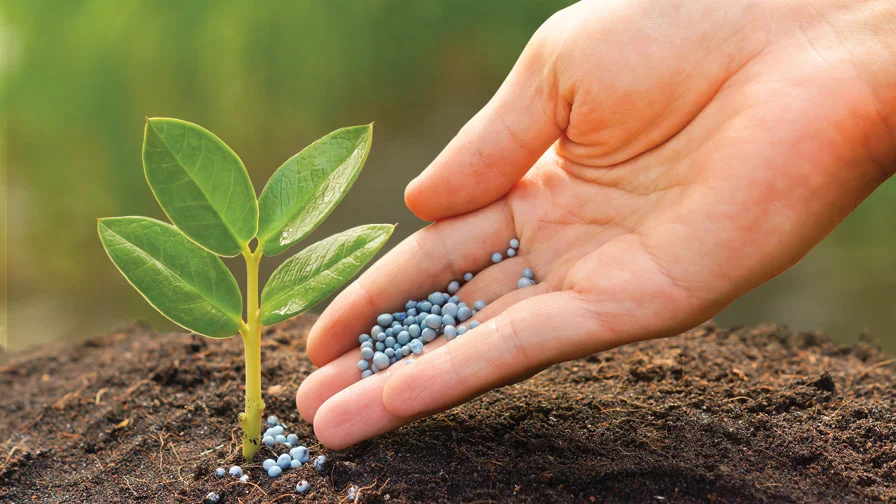Syllabus:
GS-3: Conservation, environmental pollution and degradation, environmental impact assessment
Context:
Recently, Government of India included biostimulant products in the Fertilizer Control Order (FCO), 1985, for regulating the quality of biostimulant.
More on the News
- Currently, only 146 biostimulant products have received full approval for inclusion in Schedule VI of the FCO.
- The government granted over 8,000 biostimulant products provisional G3 certificates, giving manufacturers and importers time to submit data on bio-efficacy, toxicity, and chemistry for approval under the Fertilizer Control Order (FCO), 1985.
- According to Fortune Business Insights, India’s biostimulants market is expected to grow from USD 410.78 million in 2025 to USD 1.13 billion by 2032, at a CAGR of 15.64%.
Biostimulants
- Biostimulants are substances or microorganisms that, when applied to plants or soil, enhance nutrient uptake, yield, plant growth and stress resistance, without being classified as fertilisers or pesticides.
- Plant-derived waste materials and seaweed extracts are at times used in their production.
- Officially, the Fertiliser (Inorganic, Organic or Mixed) (Control) Order, 1985, defines it as “a substance or microorganism or a combination of both whose primary function when applied to plants, seeds or rhizosphere is to stimulate physiological processes in plants and to enhance its nutrient uptake, growth, yield, nutrition efficiency, crop quality and tolerance to stress but does not include pesticides or plant growth regulators which are regulated under the Insecticide Act, 1968.”
Fertilizer Control Order (FCO)
The Fertilizer Control Order, 1985 is issued under the Essential Commodities Act, 1955, to control the manufacturing, distribution, sale, and pricing of fertilizers.
It mandates the registration of manufacturers, importers, and dealers, sets quality and packaging standards for fertilizers, establishes quality control laboratories, and regulates fertilizer prices and allocation to ensure fair availability for farmers and prevent adulteration.
Bio-stimulants specified in Schedule VI shall be classified under any of the following categories, namely: –
- Botanical extracts, including seaweed extracts: Soluble powders or liquid extracts.
- Cell free microbial products: Bacillus and Rhizobium
- Humic & fulvic acid and their derivatives: Peat, soft coal and leonardite.
- Bio-chemicals
- Protein hydrolysates and amino acids
- Vitamins
- Antioxidants
- Anti-transpirants
- Live micro-organisms excluding biofertilisers and biopesticides
Essential Commodities Act, 1955
- It empowers the government to regulate the production, supply, and distribution of commodities deemed essential to the public’s interest.
- Its main goal is to ensure the fair availability and distribution of essential goods at fair prices, prevent profiteering and hoarding, and secure supply for essential needs including national defence.
- The Act gives the Central Government broad powers to control these commodities, which include foodstuffs, drugs, fertilizers, and petroleum products, by issuing orders on production limits, pricing, storage, and trade.
- Violating the act can result in a punishment of imprisonment for a term of at least three months and a maximum of seven years, along with a fine.

